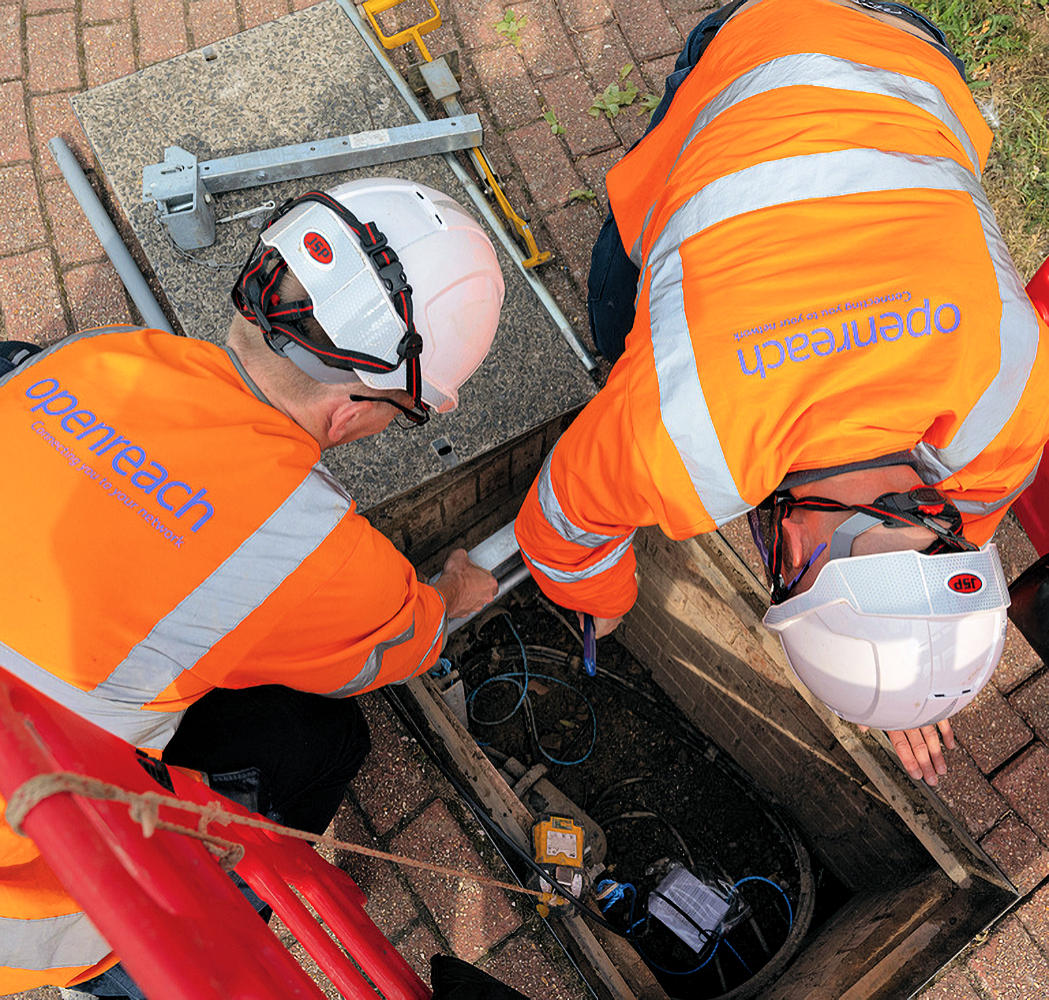A new “PIA Coalition” of alternative UK broadband networks, including nexfibre, AllPoints Fibre, CommunityFibre, Gigaclear, Netomnia and Brsk, has been setup and is calling on market regulator Ofcom to “ensure a level playing field for access” to Openreach’s passive infrastructure (existing cable ducts and poles) in its upcoming Telecoms Access Review 2026 (TAR).
At present Openreach is already required to provide access to their existing cable ducts and poles via the regulated Physical Infrastructure Access (PIA) product, which has been extremely successful. This enables rival networks (Altnets) to run their own fibre optic cables via the incumbent’s existing infrastructure – cutting down on build costs, disruption and speeding up rollouts of gigabit-capable full fibre (FTTP) broadband ISP networks.
NOTE: The initial coalition members represent UK fibre coverage of over 5 million premises (RFS), making them one of the largest users of the PIA network.
However, the PIA Coalition has conducted its own “detailed economic analysis of Openreach PIA regulation” (carried out by SPC Network), which they say has revealed an “imbalance” between Openreach and alternative network operators, particularly in pricing, where altnets “pay significantly more to access ducts and poles than Openreach charges itself.”
The Coalition is thus calling for Ofcom – in its upcoming TAR (summary) – to act and “ensure all users of PIA have a level playing field for access to infrastructure“. The group claims that failure to act will “harm competition and investment in the long-term“, as well as “damage the UK’s ability to compete internationally” (we suspect that last statement relates more to broader indirect business impacts).
Under Ofcom regulations, PIA access must be offered by Openreach in a way that does not discriminate against third party users. The PIA Coalition suggests that its evidence shows that this is “not happening under the [current] pricing structure“.
Giles Rowbotham, Spokesperson for the PIA Coalition (inc. CDO at nexfibre), said:
“At the moment there is not a level playing field between Openreach and alternative network operators on PIA. Alternative network operators pay significantly more to access infrastructure compared to Openreach. If left unremedied, this disparity risks choking investment, slowing down the rollout of high-speed broadband across the UK, and therefore limiting consumer choice.
We’re calling on Ofcom to act in its upcoming market review to ensure a level playing field for all providers and fair and equal access to critical infrastructure. The Coalition has presented a detailed analysis to the regulator and to Openreach and we look forward to engaging collaboratively and constructively on this issue.”
On the one hand there’s a perhaps natural element of vested interests above and the fact is that PIA, despite a few rough edges with some of its processes and requirements, has clearly been fairly sucessful – even if it did take a lot of regulator changes, across many years, and a few failed starts before it reached that point.
On the other hand, if legitimate concerns over pricing have been identified then the best time to assess such things is during a major market review period. Such reviews only happen every five years and the next one will cover the period from 2026-31, which makes it important to ensure that the rules are delivering what was promised.
As usual, Ofcom will have the incredibly difficult job of trying to balance the many competing (vested) interests between different operators, and inevitably this will always result in some winners and losers. Sadly, today’s announcement doesn’t provide any actual evidence to support the claims, which would have been useful. Admittedly, such data can often carry issues of commercial sensitivity, although we hope to unearth a bit more detail in the near future.

